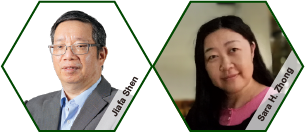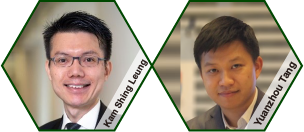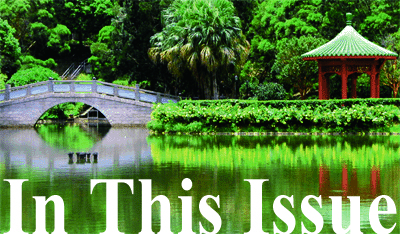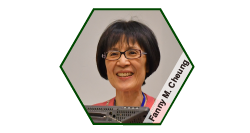
|
|||||||||||||||||||||||||||||||||||||||||||||||||||||||||||||||||||||||||||||
| Bay Area Experience: Evidence-based Policy Webinar Series |
|
Economic Integration and the Law in the Greater Bay Area: How the Qianhai Court Handled Hong Kong- and Macau-Related Cases 24 Jun 2022 | 11:00–12:15 (GMT+8) | Zoom |
|
 Prof. Dicky Tsang
Prof. Dicky Tsang
Associte Professor, Faculty of Law, CUHK Dr Xiaoyan Hou Honorary Research Fellow, HKIAPS, CUHK |
|
|
On 24 June 2022, Policy Research @ HKIAPS presented a webinar on “Economic Integration and the Law in the Greater Bay Area: How the Qianhai Court Handled Hong Kong and Macau-Related Cases”. The main speaker was Prof. Chao Xi, who shared his research on how the Qianhai courts handled private international law cases. Based on this research, he put forward several policy recommendations. One of the discussants, Prof. Dicky Tsang, shared his research in the areas of jurisdiction, choice of law, and enforcement in the Greater Bay Area (GBA). Another discussant, Dr Xiaoyan Hou, highlighted the value of data-based research findings.
How courts interpret the law plays a significant role in shaping an effective and functional legal system for sustainable growth in the GBA. Shenzhen’s Qianhai Court is the nation’s leading player in handling Hong Kong, Macau, Taiwan, and Foreign related cases. Prof. Xi’s research is based on all publicly accessible court judgements by the Qianhai Court relating to Hong Kong and Macau during the years 2015–2020, amounting to 1,790 cases. The cases were categorized into thirty-six types with reference to the causes of action. Contract disputes were found to be the most common type of case, probably reflecting the nature of GBA business and commercial transactions at this stage. There was a “homeward trend”, with the law of Mainland China being applied in 98.6% of sample cases. Prof. Xi suggested that there is a need for greater awareness of private international laws, as well as greater cooperation in determining Hong Kong and Macau laws in Mainland Chinese judicial proceedings. He also speculated that it might be worth exploring the scope of mutual judicial comity and model contract clauses. Prof. Tsang highlighted the uniqueness of Prof. Xi’s empirical research, pointing out that it is the only study that has been conducted thus far on the private international law practices of the Qianhai courts that focuses on a large sample size in terms of both jurisdiction and choice-of-law. In his own research, Prof. Tsang also found positive developments in the areas of cooperation and harmonization of private litigation between the Mainland and Hong Kong, including in jurisdiction and choice of law. Dr Hou further noted that Hong Kong laws are currently rarely applied in GBA legal practice when handling relevant cases. One reason for this is the vague expression of the contract parties’ choice of law. There might also be other reasons that are currently unclear. She believes that further empirical research like that of Prof. Xi’s could help to clarify this issue. About 40 local and regional participants attended the webinar. ■ |
|
|
Youth Entrepreneurship of Hong Kong in the Greater Bay Area – Think Again and Imagine the Future 20 May 2022 | 11:00–12:15 (GMT+8) | Zoom |
|
 Mr Claudius Tsang
Mr Claudius Tsang
CEO & Chairman, A SPAC I Acquistion Corp; Model Performance Acquisition Corp Mr Gavin Lou Founder & CEO, King's Phase Technologies; XY Technologies Limited |
|
|
Policy Research @ HKIAPS presented a webinar on “Youth Entrepreneurship of Hong Kong in the Greater Bay Area – Think Again and Imagine the Future” on 20 May 2022. The main speaker, Prof. Kevin Y. F. Au, analysed the challenges that entrepreneurs might face in Hong Kong and the Greater Bay Area (GBA), and offered young people and policy makers some advice on entrepreneurship in GBA. The two discussants were Mr Claudius Tsang and Mr Gavin Lou, who shared their experiences and observations on entrepreneurship.
The speaker and discussants particularly addressed Shenzhen’s entrepreunship environment and compared it to New York City and Hong Kong. Both cities have a great deal of resources and financing support, which helps the growth of new start-ups. However, in Shenzhen, there is a lack of collaboration among stakeholders. Many people in Hong Kong also were slow to embrace that China was rising when the new economic paradigm in Shenzhen unfolded. Instead of “pushing” young people to try to start a business in the GBA solely by singing the praises of the GBA from a materialistic perspective, a more appealing approach is to create opportunities for collaboration and attend to the identity and emotional needs of youngsters. The speaker called for a paradigm shift in attitudes toward China’s development and young people’s expectations of their career development and life plans. The younger generation should also “think again” to create their own identities and write their own stories given a possible future for them in GBA. Prof. Au shared his thoughts on these issues and supplemented them with his recent experience in the “MAKE a DASH” programme, which is aimed at supporting young entrepreneurs to develop businesses in the GBA. Mr Tsang shared his observations on the differences in human resources and working attitudes between Hong Kong and mainland China. He suggested that young entrepreneurs who aspire to start a business in the GBA should expect keen competition, especially in the field of technology. Mr Lou shared his experiences with his start-up company. He pointed out that one reason the young generation hesitates to develop their career in the GBA relates to mobility barriers. Start-ups come with tremendous responsibilities, and entrepreneurs should get ready to meet the challenges that they will encounter along the way. A total of 47 local and regional participants attended the webinar. ■ |
|
|
Video: http://137.189.83.238/policy_research/video/gba_video_6.mp4
Article: Au, K. Y. F., & Lo, S. K. W.* (2022, June 22). Visualizing entrepreneurship in the Greater Bay Area: Think again and imagine the future. HK01. (In Chinese) |
|
|
Education and Labor Market Outcomes in Hong Kong and Guangdong 29 Apr 2022 | 11:00–12:15 (GMT+8) | Zoom |
|
 Speaker SpeakerProf. Dongshu Ou Associate Professor, Department of Educational Administration and Policy, CUHK |
|
 Prof. Stephen W. K. Chiu
Prof. Stephen W. K. Chiu
Chair Professor of Sociology, Department of Social Sciences, The Education University of Hong Kong Prof. Chen Li Associate Professor, Centre for China Studies, CUHK |
|
|
Policy Research @ HKIAPS presented a webinar on “Education and Labour Market Outcomes in Hong Kong and Guangdong” on 29 April 2022. The main speaker, Prof. Dongshu Ou, presented her latest research on the educational mismatch experienced by male workers in the Greater Bay Area (GBA), which is part of a larger research initiative on the Greater Bay Area involving researchers at CUHK and Brown University. The two discussants, Prof. Stephen W. K. Chiu and Prof. Chen Li, shared their thoughts on education in the GBA.
In Prof. Ou’s study, educational mismatch is defined as the difference between the level of education that an individual has attained and the level of skill required for a specific job. The difference represents a manifestation of undereducation or overeducation, which means that there is inefficiency in the use of public resources in society. An educational mismatch will lead to lower job satisfaction and higher job turnover. The research team used the realized matches (RM) method to measure incidences of educational mismatch, and compared natives and immigrants in Hong Kong and Guangdong province in relation to overeducation and undereducation. The results were compared with findings from cities worldwide. The RM method uses the distribution of the education levels of workers in each occupation to infer the level of education required for that job. This analysis uses the mean or mode of the education level of the labour force engaged in this occupation in the local labour market. When an individual’s level of education deviates from the mean/mode to a certain extent (e.g., more than one standard deviation), an educational mismatch can be identified. The research team found that although an educational mismatch exists in Hong Kong, it is relatively minor compared to the situation in other regions or countries. The difference between natives and immigrants in the educational mismatch is also diminishing over time. The results indicate that overeducation is prevalent among mainlander immigrants with associate degrees. However, the wage premium for those who are overeducated is minimal. On the other hand, overeducation in Guangdong is notably higher among migrants from other provinces than among natives. The returns from having the required education are very high. The wage penalty for undereducation and the wage premium for overeducation is high as well. Based on these findings, Prof. Ou’s team recommended that efforts be made to facilitate the recognition of diplomas and certificates obtained by migrant workers, as well as to match the supply of educated migrants with the demand from the labour market. Prof. Chiu shared his observations on the incidence of overeducation in Hong Kong, as well as on the relationship between the perceived heterogeneity of qualifications and the difference in the returns from education. Prof. Li proposed another angle to predict educational mismatch in the GBA. It is possible that a change in the economic and industrial structure of a country or a city may lead to high expectations about the returns from education, and to keen competition in society, both of which could potentially be associated with mobility in the labour market. A total of 57 local and regional participants attended the webinar. ■ |
|
 Prof. Jianfa Shen
Prof. Jianfa Shen
Professor, Department of Geography and Resource Management, CUHK Prof. Sara H. Zhong Associate Professor, Department of Sociology, CUHK |
|
|
The Webinar Series on Bay Area Experience organized by Policy Research @ HKIAPS presented a Webinar on the topic “Limits to Hong Kong’s Integration in the Greater Bay Area” on 25 March 2022. In this webinar, the main speaker, Prof. Yun-wing Sung described and explained the limited level of integration achieved by Hong Kong in the last three decades using three strands of economic theories in integration. The two discussants, Prof. Jianfa Shen and Prof. Sara Zhong, further explored and elaborated on the difficulties and barriers to successful regional economic integration in the case of the Greater Bay Area (GBA).
Prof. Sung identified the unique arrangement of Hong Kong’s “One Country, Two Systems” as the major attribute setting both the framework for and limits to Hong Kong’s integration in the GBA. In his study conducted in 1995, he characterized the arrangement as “subregional economic integration with Chinese characteristics”. He found that before the handover of sovereignty in 1997 Hong Kong had not achieved deep integration with the GBA nor did the level of integration match with the classical European model, but that a specific level of integration between Hong Kong and the Greater Pearl River Delta region had developed due to the different political, legal, and economic systems between the two places. The difficulties with integration have persisted in the subsequent two decades. The three major asymmetries, namely openness, level of development, and size, have become the major challenges to the integration of Hong Kong into the GBA. In this webinar, Prof. Sung placed an emphasis on the size of Hong Kong, claiming that Hong Kong is too small to be able to provide the space and resources needed to absorb an influx of Mainland visitors/migrants. He contended that the resulting overcrowding has had a socio-political impact and led to social conflicts between mainlanders and Hong Kongese in the past two decades. However, 2021 could be regarded as a watershed in Hong Kong’s integration into the GBA, since the COVID-19 pandemic has minimized conflicts between Hong Kong and the GBA. It can be observed that Hong Kong’s resistance to mainland health workers and professionals has largely disappeared from the recent fifth wave of COVID. A decisive change in Hong Kong’s resistance toward integration may occur in the post-COVID era. Prof. Shen shared Prof. Sung’s views on the limits to Hong Kong integration into the GBA. He discussed the possibility that different sectors could achieve better integration under the situation of varying difficulties to integration. He also believed that the government could involve more private or outside companies in mega infrastructure projects. The other discussant, Prof. Zhong, proposed alternative theoretical approaches to understanding the existing challenges to integration, including a clash of civilizations, world-system theory, migration, and the effect of the media. She pointed out that social and cultural differences between Hong Kong and Mainland China could become barriers to integration between Hong Kong and the GBA. A total of 62 local and regional participants attended the webinar. ■ |
|
|
Video: http://137.189.83.238/policy_research/video/gba_video_4.mp4
Articles: 1. Sung, Yun-wing*, & Lo, S. K. W.* (2022, July 5). Reflections on Hong Kong’s integration into the GBA: Constraints and breakthroughs. Hong Kong Economic Journal, p. A14. (In Chinese) 2. Sung, Yun-wing*, & Lo, S. K. W.* (2022, July 6). Overcoming the bottlenecks of Hong Kong’s integration into the GBA. Hong Kong Economic Journal, p. A16. (In Chinese) |
|
|
Building the Future STEM Workforce from K-12 in the Greater Bay Area 25 Feb 2022 | 11:00–12:15 (GMT+8) | Zoom |
|
 Prof. Ching-sing Chai
Prof. Ching-sing Chai
Professor, Department of Curriculum and Instruction, CUHK Prof. Peter Z. Wan Assistant Professor, Department of Curriculum and Instruction, The Education University of Hong Kong |
|
|
Policy Research @ HKIAPS launched its Bay Area Experience Webinar Series on 25 February 2022, with the topic “Building the Future STEM Workforce from K-12 in the Greater Bay Area”. In this webinar, Prof. Thomas K. F. Chiu shared his research on the STEM education programme in the HKSAR, including on the background of STEM education, the possible challenges to improving STEM education and the workforce, and the corresponding recommendations. The two discussants, Prof. Ching-sing Chai and Prof. Peter Z. Wan, commented on and elaborated upon issues relating to integrative STEM and the STEM workforce.
In his presentation, Prof. Chiu pointed out that an interest in and identification with STEM are strong indicators of continuous engagement by students in STEM-related activities. Other factors, including the current examination system and the heavy language requirements, may also affect students’ perception of STEM-related subjects. The finding also highlights the relatively little relevance that Hong Kong students perceive that STEM education plays in their life. Based on the finding, Prof. Chiu proposed strengthening STEM identity by improving STEM education in schools, universities, and industries in Hong Kong. For example, secondary schools should help students equip themselves to explore opportunities in post-secondary education and in the job market in STEM disciplines. Such opportunities may even enhance social mobility and reduce social inequality in Hong Kong. Echoing Prof. Chiu, Prof. Chai shared his research on support for STEM education. His research indicated teachers who have had a STEM education are significantly more efficient than other teachers. The sharing of teaching ideas and resources among teachers with different areas of expertise could lead to better outcomes in STEM education. Prof. Wan, for this part, discussed the future STEM workforce. He pointed out that current STEM skills need not be limited to STEM industries but can be applied more broadly. He believes that one drawback of the “Lego-type” of STEM learning is that students end up with a weak grasp of subject knowledge and skills. The suppression of creativity and the lack of connection among different activities might also hinder outcomes in STEM learning. Around 40 local and regional participants attended the webinar. ■ |
|
|
Video: http://137.189.83.238/policy_research/video/gba_video_3.mp4
Article: Chiu, K. F.*, Lo, S. K. W.* (2022, April 1). Nurturing STEM talents from K-12. Hong Kong Economic Journal, p. A16. (In Chinese) |
|
|
Spatial Planning for Smart Sustainability in Shenzhen, China’s Silicon Valley 21 Jan 2022 | 11:00–12:15 (GMT+8) | Zoom |
|
 Dr Kam Shing Leung
Dr Kam Shing Leung
Associate Director, ARUP Dr Yuanzhou tang Research Associate, Institute of Future Cities, CUHK |
|
|
Policy Research @ HKIAPS launched its Bay Area Experience Webinar Series on 21 January 2022, with the topic “Spatial Planning for Smart Sustainability in Shenzhen, China’s Silicon Valley”. In this webinar, Prof. Mee Kam Ng presented Shenzhen’s achievements and challenges in smart sustainable development and the implications on planning and development in the Hong Kong SAR. The two discussants, Dr Kam Shing Leung and Dr Yuanzhou Tang, further elaborated with clarifications and specific cases of Shenzhen’s development.
In her presentation, Prof. Ng first summarized the city’s dramatic urban and economic growth, including in the aspects of globalization, regional cooperation, and the economic restriction of Shenzhen from the 1980s to the 2010s. She identified four key constraints on this rapid growth, including shortages of land, water, and energy, as well as the carrying capacity of the ecological environment. She illustrated how Shenzhen resolved those problems by using different smart and sustainable innovations and strategies, citing the examples of Shenzhen’s seven development strategies in 2005 and their draft territorial spatial master plan in 2021. She pointed out that Hong Kong could learn from Shenzhen’s dynamic spatial planning as an effective tool to build on strengths, overcome weaknesses, exploit opportunities, and blunt threats over time, so that Hong Kong can play a bigger role in the Greater Bay Area (GBA). Dr Leung shared his experiences with Shenzhen’s development. He highlighted the uniqueness of Shenzhen as a special development model such as the manufacturing zero zone (M zero zone), as well as how Shenzhen has been enhancing its education talent pool by inviting reputable universities to set up campuses there. Dr Tang presented his observations on the latest developments in Shenzhen by using different cases, including an online platform for land use planning, an open data platform, real-time online transport simulation system technology, and so on. The promotion of these new and cutting-edge technologies and the enhancement of public accessibility are important to the development process. A total of 47 local and regional participants attended the webinar. ■ |
|
|
Video: http://137.189.83.238/policy_research/video/gba_video_2.mp4
Articles: 1. Ng, M. K., & Tang, Y. (2022, March 23). Smart sustainable development 1: Visions and Implementation-driven efforts towards smart sustainability in Shenzhen. HK01. (In Chinese) 2. Ng, M. K., & Tang, Y. (2022, March 23). Smart sustainable development 2: Shenzhen becoming China’s “Silicon Valley” and its implications for Hong Kong. HK01. (In Chinese) |
|






